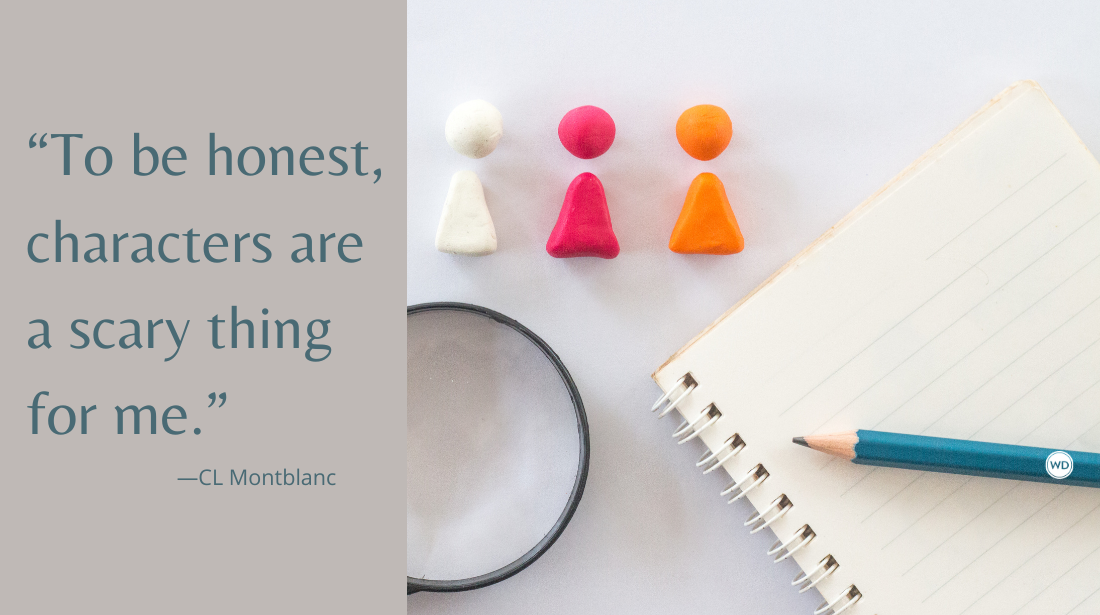A Delicate Balance: Flavoring a Serious Novel With Dashes of Humor
What’s the magic word for balancing emotions in a novel? Author Susan Reinhardt shares this along with other tips for flavoring a serious novel with dashes of humor.
I realized long ago I’m not cut out to make it as a literary author—the kind with an MFA on the wall and wool cardigans in a chest, one who writes exquisite words worthy of gilded frames.
My strengths are building quirky characters and taking serious plots or themes and injecting the work with humor. I’m not referring to one-liner jokes and slapstick-style humor, but the kind of whimsy and respite built from setting, dialogue, and the intrinsic makeup of characters. Humor is a tool I use to dial down tension, sadness, and heavier material. It’s my pressure-release valve, and I prefer this when I read novels for pleasure.
Give me Rachel’s Holiday by Marian Keyes and Gail Honeyman’s Eleanor Oliphant is Completely Fine. Throw in A Man Called Ove and Chemistry Lessons, all brilliantly written and sugared with laughter and wit.
Whether it’s a learned skill or one that’s innate, flashes of funny spring naturally as I write. Maybe because I was raised in the South where we like our tea sweet and our barbecue spicy. Every funeral I’ve ever attended diluted the weeping with stories about the deceased that brought on laughter. Even during murder trials, the defense, prosecution, or witnesses often throw something in that makes spectators chuckle.
As writers, we must go with what we’re good at. But for years I fought it, trying my hand at writing serious fiction, the kind that wins prestigious prizes. I read the classics, drank dark wine, sipped coffee strong enough to dissolve crowns, and studied woebegone poetry. Once, I even bought a tweed suit, thinking if I looked and felt the part, surely I could write like the next Elizabeth Strout. I tried to think deep thoughts and put esoteric, multi-syllabic words on paper. I got as far as having a short story published in a prestigious literary journal, but that’s where my foray into serious lit dead ended.
I couldn’t do it. Not only did I lack the talent, but I also wanted to feel more than just anger and sadness when reading a book. Yes, I love beautiful words and complex and heart-wrenching topics, but please, for the love of amusement, give me a novel that will also make me laugh.
Laughter is the great healer, a leveler, and an emotion strong enough to forge bonds between people. We are drawn to people who make us laugh. And most of us are also fond of characters who charm us with a great sense of humor. The most successful writers weave their novels with layers, knowing a palette of emotion is what readers crave.
After years of enjoying modest success writing nonfiction humor books, I decided to write a novel and use these skills. My topic, based on a true story of a woman who survived horrific spousal abuse, was tragic, but it was a story I felt compelled to tell. This novel, my debut, Chimes from a Cracked Southern Belle, was first published by Grateful Steps in 2013 and won an Independent Publishers Book Award for Best Southeast Fiction. Someone asked my publisher how I managed to make a sad story, at times funny.
“Reinhardt achieves what would ordinarily be an impossible task, that of presenting a tragic heroin in a continuously amusing light, while never forfeiting sensitivity to her plight…”
I believe the key word here is sensitive. Never sprinkle comedy into weighty material for a cheap laugh. Humor must be organic and subtle, not a complete about-face within the pages.
“As long as it comes across as the characters finding some relief from the seriousness and shows compassion,” said my friend and avid reader Angela Booth. “It would be weird if it was just thrown in there flippantly.”
“A little humor can be a real gift to mental health,” my writer friend Nancy Rollins agreed.
For my second novel, The Beautiful Misfits, which Regal House publishes in March, I knew my topic about the opioid epidemic was heavy but one that needed exploring. I also realized only the dour and sour would want to slog through 300 pages of angst.
This is the novel in which I did what the old guard suggested. I opened a vein, severed an artery, and bled all my emotions onto the pages. But I scattered the scenes with humor as if a tourniquet to stop the bleeding. The novel, about a mother going to extreme and unlikely lengths to save her millennial son from opioid addiction, is at times grueling, heart-breaking, and tear-jerking.
But to write an entire novel without glimmers of hope or dashes of laughter isn’t my style. I want all the feels. I want to love and I want to hate. I want to weep and I want to laugh out loud. With The Beautiful Misfits, I chose to use a secondary setting at a mall makeup counter as the backdrop for the funny parts.
Humor, if done in batches, keeps readers turning pages. We all want to feel good and walk away from a novel feeling more than just depressed. Readers want to close the book and feel moved, changed on some level, and buoyed by the experience.
As filmmaker Joss Whedon says, “Make it dark, make it grim, but then, for the love of God, tell a joke.”
Susan Reinhardt lives near Asheville, N.C. and is the author of The Beautiful Misfits, and other books and novels.








